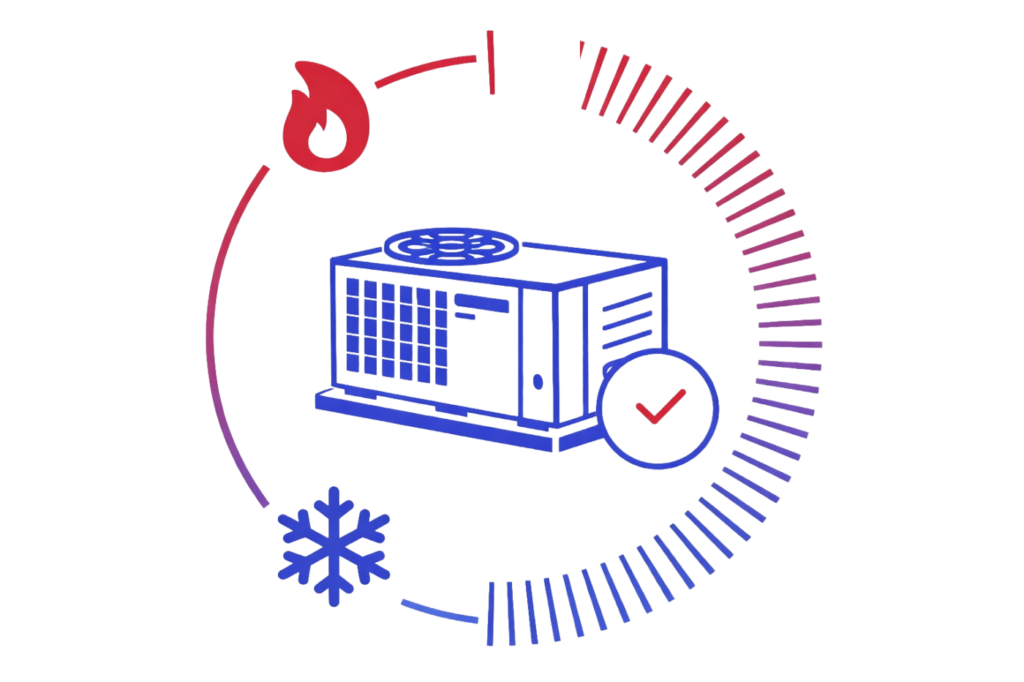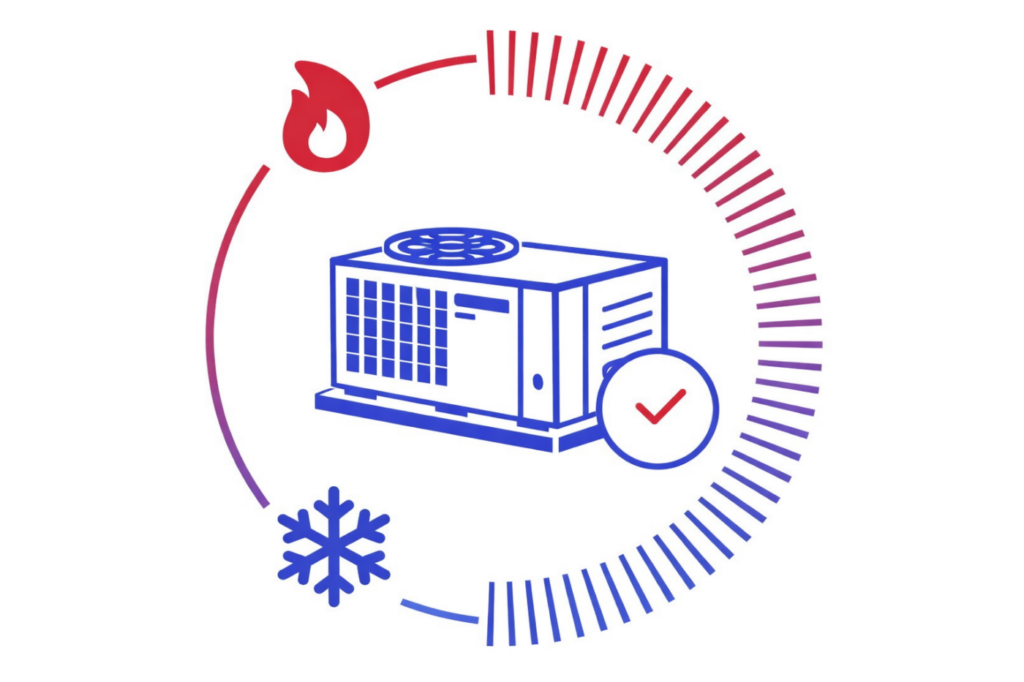R-454B is the next generation of environmentally friendly refrigerants, replacing R-410A. Known for its lower global warming potential (GWP), R-454B offers improved energy efficiency and compliance with 2025 EPA standards. Compared to R-410A, it reduces GWP by approximately 78%, contributing to a greener future. Additionally, R-454B is designed to work in many of the same HVAC systems that use R-410A, making the transition smoother for homeowners and businesses.
For homeowners, upgrading to an R-454B system ensures compliance with regulations, energy savings, and long-term value. R-454B systems improve the energy efficiency ratings of air conditioners, contributing to energy savings and compliance with regulations. Upgrading your HVAC system is one of the most effective ways to improve your home’s energy efficiency and reduce energy costs. Key considerations include professional installation, potential infrastructure updates, and understanding rebates or incentives. Embracing R-454B in your new HVAC system is an investment in sustainability and comfort.
Stay ahead and upgrade to R-454B technology today!
Introduction
As the world becomes increasingly aware of the importance of energy efficiency, homeowners are looking for ways to reduce their energy consumption and lower their energy costs. One of the most effective ways to achieve this is by installing an energy-efficient HVAC system. In this guide, we will explore the benefits of energy-efficient HVAC systems, the different types available, and how to choose the right one for your home. By understanding the options and advantages, you can make an informed decision that not only enhances your comfort but also contributes to a more sustainable future.
What is an Energy Efficient HVAC System?
An energy-efficient HVAC system is designed to provide optimal heating and cooling while minimizing energy consumption. These systems use advanced technologies and materials to reduce energy waste and provide a more comfortable indoor environment. Energy-efficient HVAC systems can help homeowners save money on their energy bills, reduce their carbon footprint, and improve the overall comfort and health of their home. In fact, energy-efficient HVAC systems can save homeowners up to 20% on their heating and cooling costs. By investing in an efficient HVAC system, you are not only enhancing your living space but also making a positive impact on the environment.
Understanding HVAC Efficiency Ratings
HVAC efficiency ratings are a measure of how well an HVAC system converts energy into heating or cooling. The most common ratings include:
SEER (Seasonal Energy Efficiency Ratio): measures the cooling efficiency of an HVAC system. A higher SEER rating indicates a more energy-efficient air conditioning unit.
HSPF (Heating Seasonal Performance Factor): measures the heating efficiency of an HVAC system. A higher HSPF rating means better heating performance and energy savings.
AFUE (Annual Fuel Utilization Efficiency): measures the efficiency of a furnace. A higher AFUE rating signifies that the furnace converts more fuel into heat, reducing energy waste.
EER (Energy Efficiency Ratio): measures the cooling efficiency of an HVAC system at a specific temperature. A higher EER rating indicates a more efficient cooling system.
SEER2 and HSPF2: These are new energy efficiency metrics for residential air conditioners and heat pumps, providing updated standards for evaluating system performance.
Understanding these ratings can help homeowners make informed decisions when choosing an energy-efficient HVAC system, ensuring they select a unit that offers the best performance and energy savings.
Types of Energy Efficient HVAC Systems
There are several types of energy-efficient HVAC systems available, including:
Air-source heat pumps: These systems use heat from the outside air to provide heating and cooling. They are highly efficient and can significantly reduce energy consumption. Air-source heat pumps are one of the most energy-efficient HVAC systems available.
Ductless mini-split systems: These systems provide heating and cooling without the need for ductwork, making them ideal for homes without existing ducts. They offer flexibility and high energy efficiency.
Geothermal systems: These systems use heat from the earth to provide heating and cooling. They are incredibly efficient and environmentally friendly, though they require a higher initial investment.
Hybrid systems: These systems combine different energy sources, such as solar and gas, to provide heating and cooling. They offer the benefits of multiple technologies, optimizing energy use and reducing costs.
Each type of system has its own unique benefits and drawbacks, and the right choice will depend on the specific needs and circumstances of the homeowner. By understanding the options, you can select the most suitable energy-efficient HVAC system for your home.
Benefits of Energy Efficient HVAC Systems
Energy-efficient HVAC systems offer a range of benefits, including:
Energy savings: Energy-efficient HVAC systems can help homeowners save money on their energy bills by reducing energy consumption.
Improved indoor air quality: These systems often provide better air filtration and circulation, leading to improved indoor air quality and a healthier living environment.
Increased comfort: Energy-efficient HVAC systems can provide more consistent and comfortable temperatures throughout the home, enhancing overall comfort.
Environmental benefits: By reducing energy consumption, energy-efficient HVAC systems help lower greenhouse gas emissions and minimize the impact on the environment.
Increased property value: Homes with energy-efficient HVAC systems are often more attractive to potential buyers, potentially increasing property value.
Cost recovery: High-efficiency HVAC systems often pay for themselves through savings on monthly energy bills.
By choosing an energy-efficient HVAC system, homeowners can enjoy these benefits and more, while also doing their part to reduce their environmental impact. Investing in an efficient HVAC system is a smart choice for both your wallet and the planet.

